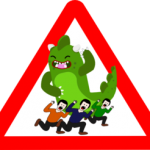My teacherpreneur work includes working on diverse teams tasked to do everything from describing the state of early childhood in Arizona to determining the skills that make a new teacher safe for the classroom to delineating the continuum of growth for teacher leaders.
No matter how different the aims of these tasks, the question always comes up: Who is an expert teacher? And when it does, I remember Supreme Court Justice Potter (1915 – 1985), who in reference to a first amendment issue famously declared that although he couldn’t define obscenity, he knew it when he saw it.
So it goes with defining expert teachers.
Here are seven thoughts on the matter.
1) Representative descriptions that teachers come up with in these conversations include: content expertise, sound pedagogy, collaborative and communication skills, empathy, creativity, vision, and so forth. The list reveals that the search for expert teachers is a search for qualities, not quantities. This conflicts with policies that demand that a large portion of a teacher’s evaluation be based on test scores.
2) There is much agreement that identifying expert teachers requires using multiple measures. Commonly mentioned measures include administrator and peer evaluations, achieving National Board Certification, student and parent feedback, The Tripod Framework, The Danielson Framework, and self-identification.
3) There is not a broad consensus on which comes first or is more important – disposition toward teaching or instructional practice. I’ll take a stand here and claim there is not an iron clad cause-effect relationship between disposition and practice. Someone can be an expert teacher without the desired dispositions, and someone else can have the desired dispositions but be a bad teacher. The former is rare but the latter is more damaging.
4) Along with Justice Stewart’s quip, the “Quality Without a Name,” as described by architect Christopher Alexander, bears reflection:
To seek the timeless way we must first know the quality without a name. There is a central quality, which is the root criterion of life and spirit in a man, a town, a building, or a wilderness. This quality is objective and precise, but it cannot be named.
The same nameless, timeless quality gives life to the expert teacher.
5) “Great” teachers are rare, and the designation is overused. But shouldn’t the baseline expectation be that all teachers will become experts or leave the profession?
6) But to become an expert at something takes 10,000 to 20,000 hours of deliberate practice, according to the 10,000 Hour Rule, popularized by Malcolm Gladwell in Outliers. A teacher is lucky to get three hours of deliberate practice in a school day. At that rate it takes something like 16 school years to become an expert teacher. According to Thomas G. Carrol and Elizabeth Foster, the greatest percentage of teachers are in their first year in the profession. (In 1987 the greatest percentage of teachers had 15 years experience.)
7) Reflecting on synonyms for expert is more fruitful than reflecting on the definition of expert:
Synonyms: Ace, Adept, Artist, Artiste, Authority, Connoisseur, Cognoscente, Dean, Doyen, Guru, Hotshot,Initiate, Maestro, Master, Maven, Pundit, Scholar, Virtuoso, Wizard, Whiz
Definition: a person who has a comprehensive and authoritative knowledge of or skill in a particular area.
During the discussions on expert teachers I’ve turned my eyes inside and asked how I stack up. The truth probably lies somewhere between my colleagues’ overestimation of my skills and my underestimation.










Comments 2
Wonderful post, Sandy. It is such a complicated issue, and as we try to define teacher leadership, it is constantly evolving and redefining itself. It’s so fluid.
Thank you, Megan. Fluid is right. You’ve inspired me to think of teachers I’ve had in the past and compare the ones I would now consider were experts to my expert colleagues.